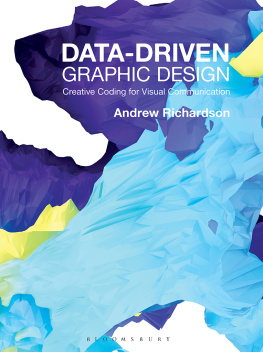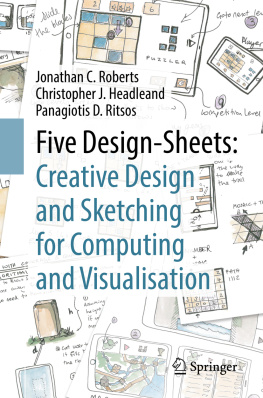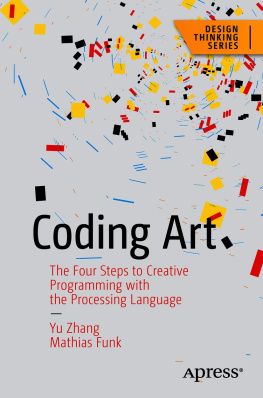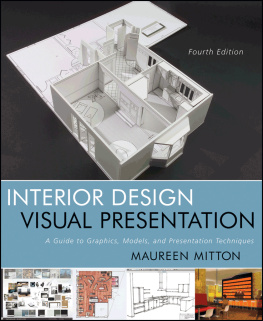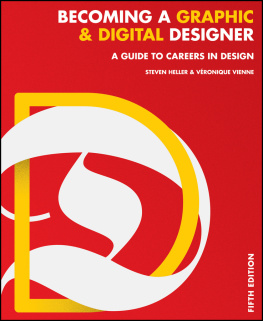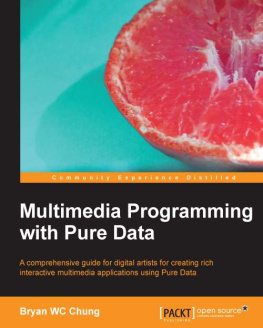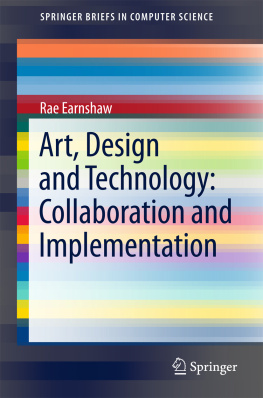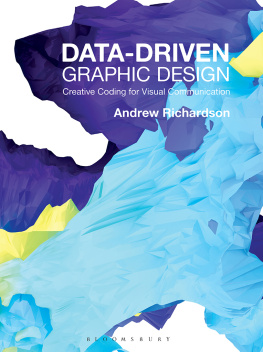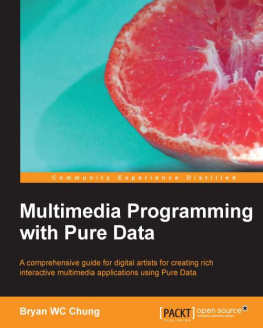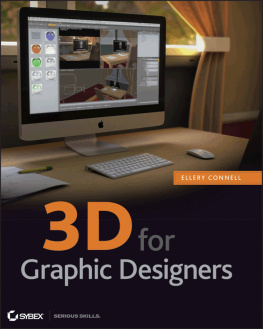Richardson - Data-driven graphic design creative coding for visual communication
Here you can read online Richardson - Data-driven graphic design creative coding for visual communication full text of the book (entire story) in english for free. Download pdf and epub, get meaning, cover and reviews about this ebook. City: London New York, year: 2016, publisher: Fairchild Books;Bloomsbury, genre: Home and family. Description of the work, (preface) as well as reviews are available. Best literature library LitArk.com created for fans of good reading and offers a wide selection of genres:
Romance novel
Science fiction
Adventure
Detective
Science
History
Home and family
Prose
Art
Politics
Computer
Non-fiction
Religion
Business
Children
Humor
Choose a favorite category and find really read worthwhile books. Enjoy immersion in the world of imagination, feel the emotions of the characters or learn something new for yourself, make an fascinating discovery.
- Book:Data-driven graphic design creative coding for visual communication
- Author:
- Publisher:Fairchild Books;Bloomsbury
- Genre:
- Year:2016
- City:London New York
- Rating:5 / 5
- Favourites:Add to favourites
- Your mark:
Data-driven graphic design creative coding for visual communication: summary, description and annotation
We offer to read an annotation, description, summary or preface (depends on what the author of the book "Data-driven graphic design creative coding for visual communication" wrote himself). If you haven't found the necessary information about the book — write in the comments, we will try to find it.
Data-driven Graphic Designintroduces the creative potential of computational data and how it can be used to inform and create everything from typography, print and moving graphics to interactive design and physical installations. Using code as a creative environment allows designers to step outside the boundaries of commercial software tools, and create a set of unique, digitally informed pieces of work. The use of code offers a new way of thinking about and creating design for the digital environment.
Each chapter outlines key concepts and techniques, before exploring a range of innovative projects through case studies and interviews with the artists and designers who created them. These provide an inspirational, real-world context for every technique. Finally each chapter concludes with a Code section, guiding you through the process of experimenting with each technique yourself (with sample projects and code examples using the popular Processing language supplied online to get you started).
Richardson: author's other books
Who wrote Data-driven graphic design creative coding for visual communication? Find out the surname, the name of the author of the book and a list of all author's works by series.

